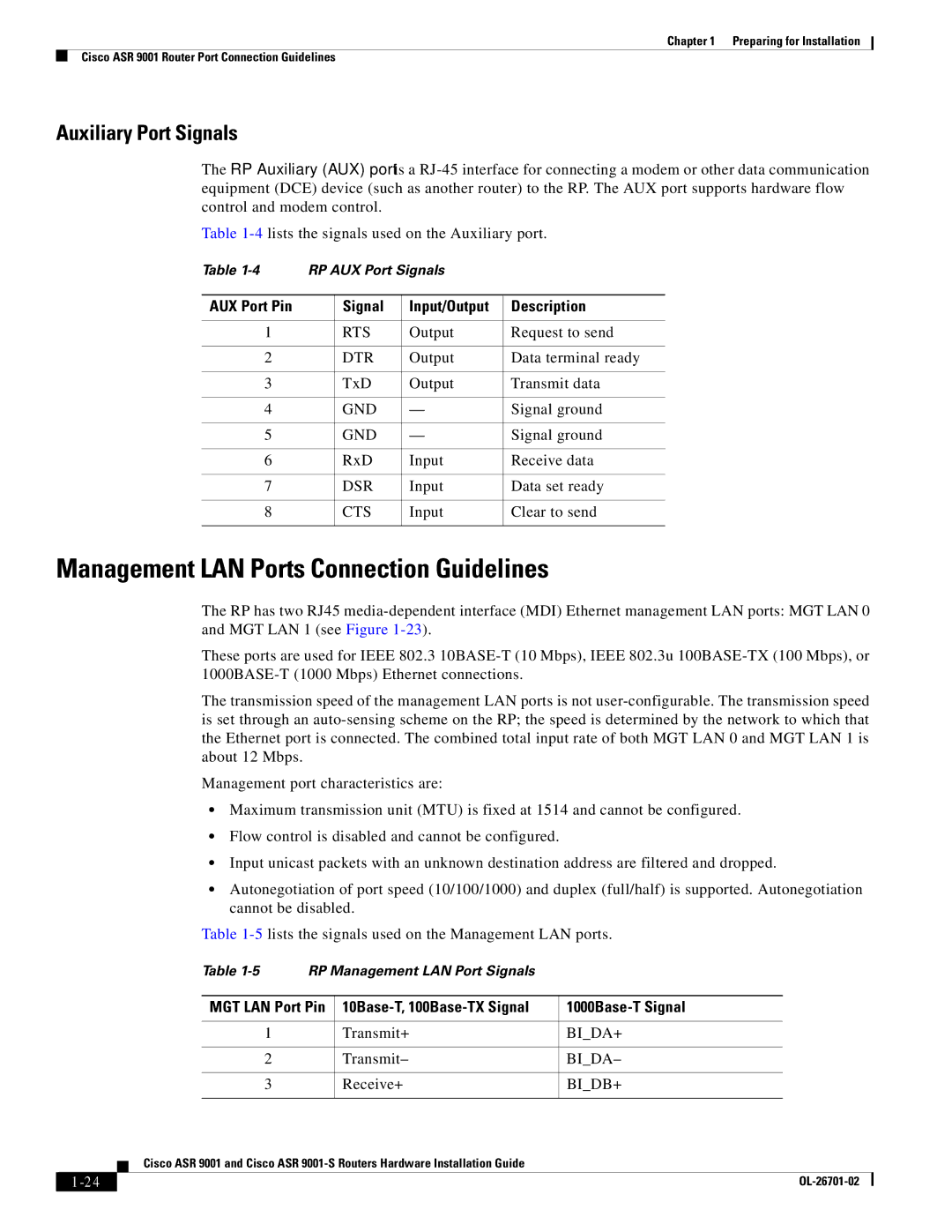Chapter 1 Preparing for Installation
Cisco ASR 9001 Router Port Connection Guidelines
Auxiliary Port Signals
The RP Auxiliary (AUX) port is a
Table
Table | RP AUX Port Signals |
| ||
|
|
|
|
|
AUX Port Pin |
| Signal | Input/Output | Description |
|
|
|
|
|
1 |
| RTS | Output | Request to send |
|
|
|
|
|
2 |
| DTR | Output | Data terminal ready |
|
|
|
|
|
3 |
| TxD | Output | Transmit data |
|
|
|
|
|
4 |
| GND | — | Signal ground |
|
|
|
|
|
5 |
| GND | — | Signal ground |
|
|
|
|
|
6 |
| RxD | Input | Receive data |
|
|
|
|
|
7 |
| DSR | Input | Data set ready |
|
|
|
|
|
8 |
| CTS | Input | Clear to send |
|
|
|
|
|
Management LAN Ports Connection Guidelines
The RP has two RJ45
These ports are used for IEEE 802.3
The transmission speed of the management LAN ports is not
Management port characteristics are:
•Maximum transmission unit (MTU) is fixed at 1514 and cannot be configured.
•Flow control is disabled and cannot be configured.
•Input unicast packets with an unknown destination address are filtered and dropped.
•Autonegotiation of port speed (10/100/1000) and duplex (full/half) is supported. Autonegotiation cannot be disabled.
Table
Table
|
|
|
| MGT LAN Port Pin |
|
|
| |
|
|
|
|
| ||||
1 | Transmit+ | BI_DA+ | ||||||
|
|
|
|
| ||||
2 | Transmit– | BI_DA– | ||||||
|
|
|
|
| ||||
3 | Receive+ | BI_DB+ | ||||||
|
|
|
|
|
|
|
|
|
|
|
| Cisco ASR 9001 and Cisco ASR |
|
|
| ||
|
|
|
|
|
| |||
|
|
|
|
|
|
|
|
|
|
|
|
|
|
|
|
| |
|
|
|
|
|
| |||
